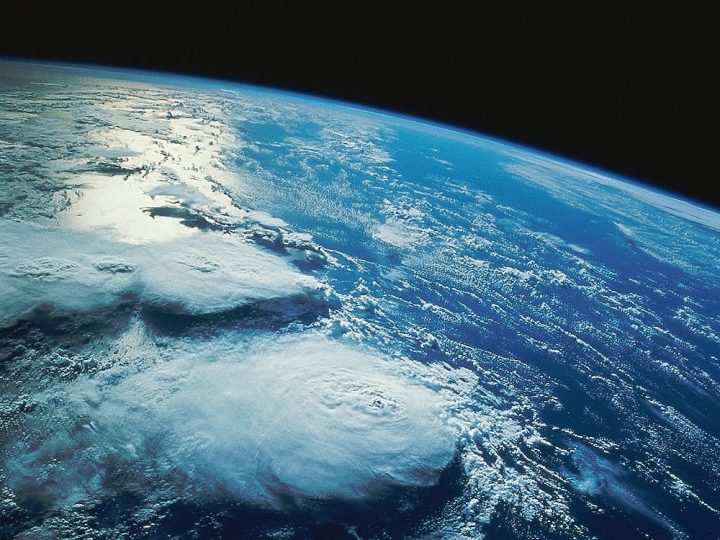By Leonardo Boff
It is a recognized scientific fact, with 95% certainty, that climate change, the main expression of which is global warming, is of an anthropogenic nature. That is, those changes have their genesis in violent human behavior towards nature.
Such behavior is not in harmony with the cycles and rhythms of nature. Humans are not adapting to nature, but forcing her to adapt to humans and human interests. Their main interest, dominant for two centuries now, is centered on the accumulation of wealth and benefits for the lives of some humans, starting with the systematic exploitation of goods and services, and of many peoples, especially the Indigenous Nations.
The countries that led this process have not given proper importance to the limits of the Earth-system. They continue subjecting nature and the Earth to a true war, even though they know that they will be defeated.
The way Mother Earth expresses the pressure on her fixed limitations is through extreme events (prolonged droughts on the one hand, and devastating floods on the other, unprecedented snow storms here, and unbearable heat waves elsewhere.)
Facing such events, the Earth has become a clear object of human preoccupation.
The several COPs (Conference of the Parties), organized by the UN, never reached an agreement. Only the Paris COP21, of November 30 to December 13, 2015 reached a minimum consensus for the first time, undertaken by all: to prevent global warming from exceeding 2 degrees Celsius.
Regrettably, this agreement is not binding. Any country may follow it, but is not of an obligatory nature, as was shown by the Northamerican Congress that revoked the ecological measures of President Barack Obama. Now President Donald Trump roundly denies them as being nonsensical and deceitful.
It is becoming ever more evident that the question is more an ethical than a scientific one. That is, the quality of our relations with nature and with our Common Home were not and are not adequate. They are in fact destructive.
Quoting Pope Francis in his 2015 inspiring encyclical letter Laudato Si: about caring for the Common Home: «We have never before mistreated and hurt our Common Home as much as in the last two centuries…these situations provoke the wailings of Sister Earth, echoing the cries of the abandoned of the world, whose voices demand that we follow a different path» (n. 53).
We urgently need a regenerative ethics of the Earth, one that restores her damaged vitality, so that she may continue giving us all that she always has given us. That must be an ethics of caring, of respect for her rhythms and of collective responsibility.
But an ethics of the Earth is not enough. It must be joined with spirituality.
This spirituality is rooted in cordial and sensible reason. From there comes the passion for caring and a serious commitment to love, responsibility and compassion for our Common Home, as is expressed at the end of the encyclical letter of Francis, Bishop of Rome.
The well known and universally admired Antoine de Saint-Exupéry, in a posthumously published text, written in 1943, Letter to General “X”, emphatically affirms: «There is one problem, and only one: to rediscover that there is a life of the spirit that is even higher than the life of intelligence. It is the only one that can satisfy the human being» (Macondo Libri 2015, p. 31).
In another text,written in 1936 when he was a Paris Soir correspondent, during the Spanish Civil War, with the title, It is important to give meaning to life, de Saint-Exupéry returns to the life of the spirit. There he affirms: «the human being does not realize himself other than together with other human beings, in love and friendship. However, human beings not only unite by being next to each other, but by fusing together in the same divinity. In a world turned into a desert, we are thirsty to find compañeros, comrades, with whom to share the bread.» (Macondo Libri p.20).
At the end of the Letter to General “X” , he concludes: «Oh how much are we in need of a God!» (op. cit. p. 36).
In fact, only the life of the spirit gives fullness to the human being. It is a beautiful synthesis of spirituality, frequently identified or confused with religiosity. The life of the spirit is more. It is as original and anthropological a fact as are intelligence and will. It is something that belongs to our most essential depth.
We know how to care for the life of the body, a true cultural phenomenon now, with so many physical fitness academies. Psychoanalysts of several tendencies help us to care for the life of the psychic, to live a life of relative equilibrium, without neuroses or depression.
But our culture practically forgets to cultivate the life of the spirit, that is our most radical dimension. It is where the great questions live, the most daring dreams dwell, and the most generous utopias are formed. The life of the spirit is nourished by intangible goods, such as love, friendship, friendly coexistence with the others, compassion, caring and openness to the infinite. Without the life of the spirit we wander about, without a direction that guides us and makes life appetizing and grateful.
An ethics of the Earth is not sustained by itself indefinitely, without that supplément d’ame that is the life of the spirit. It makes us feel part of Mother Earth, to whom we must give love and caring.
Leonardo Boff
Theologian-Philosopher
Earthcharter Commission










